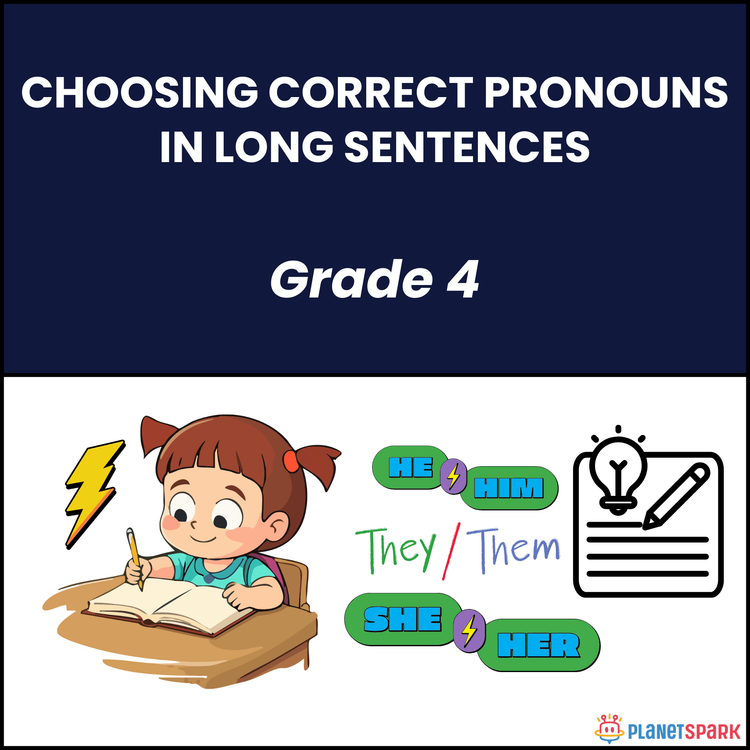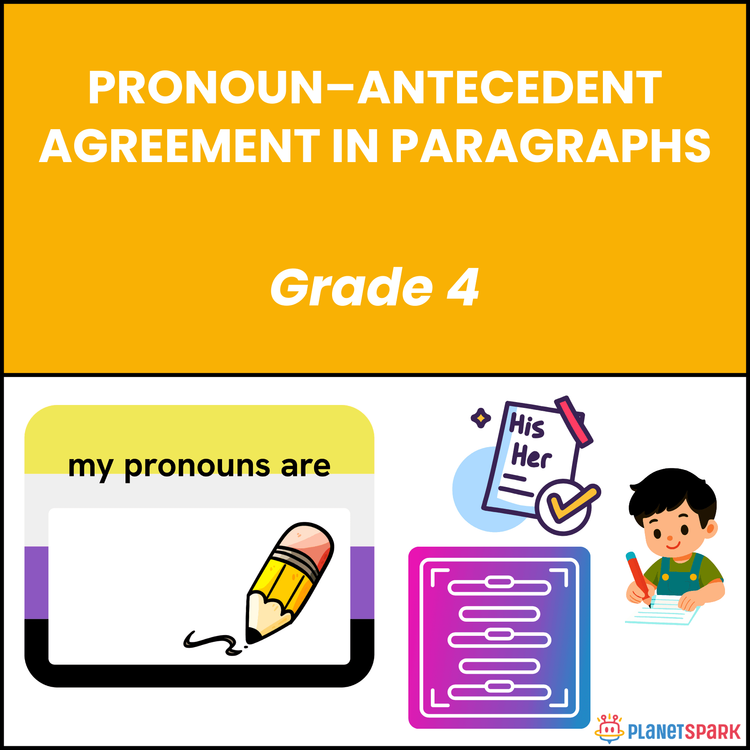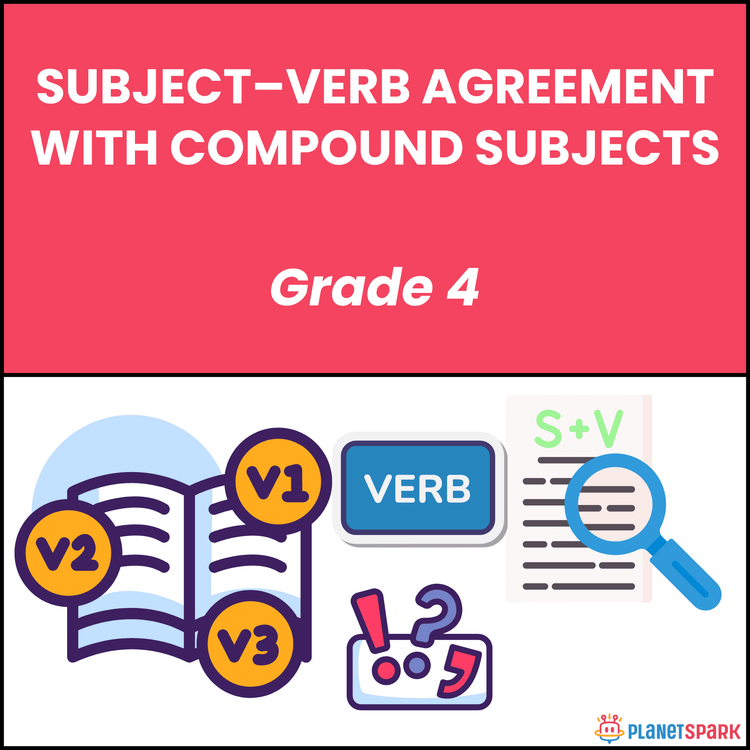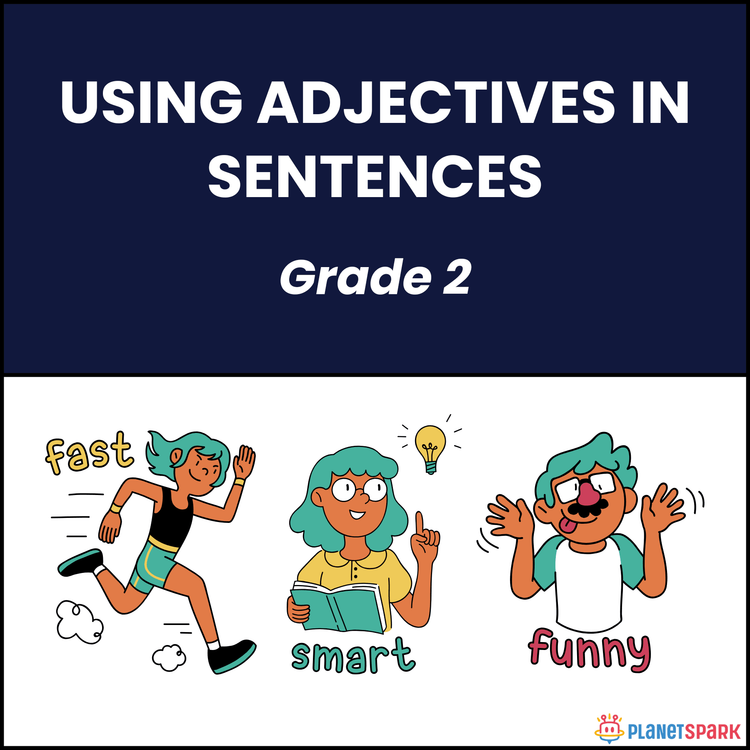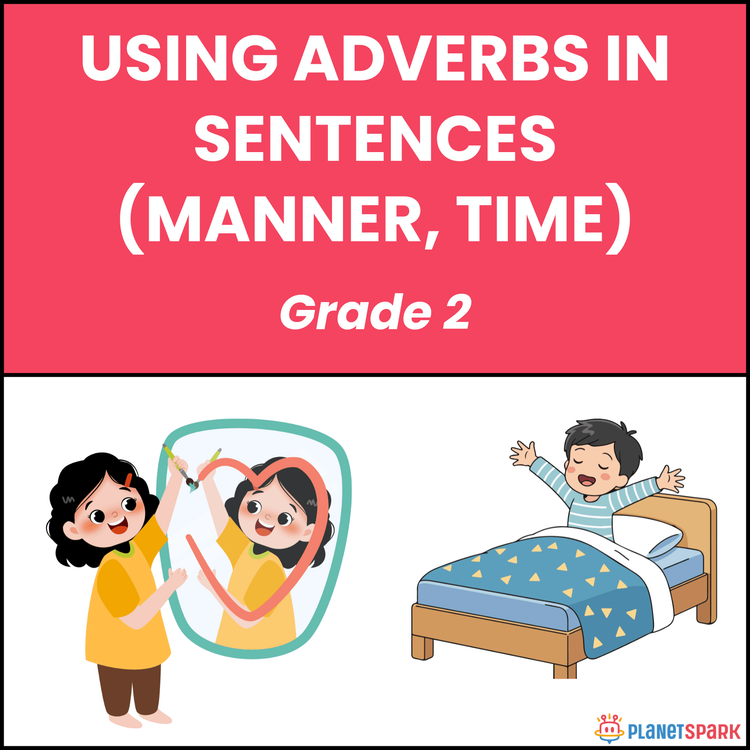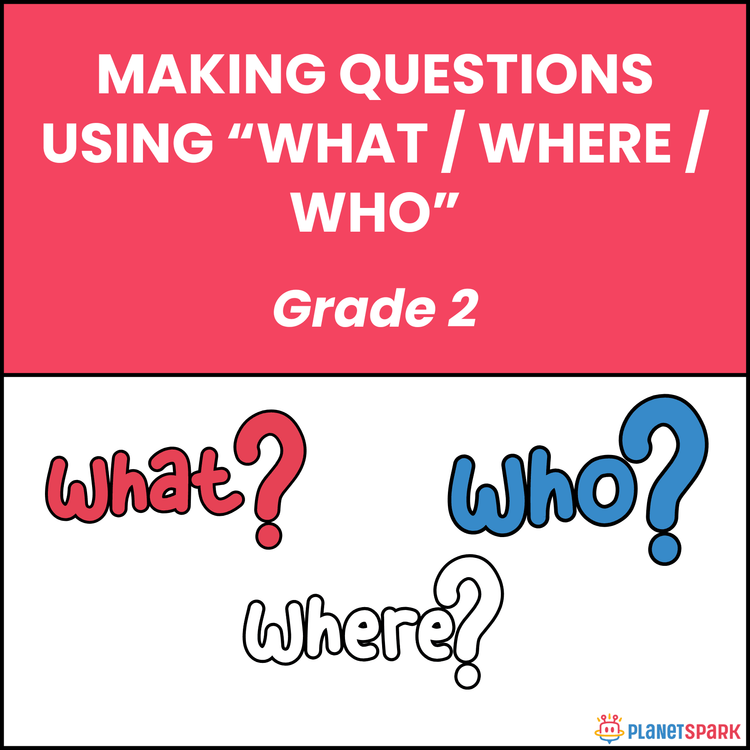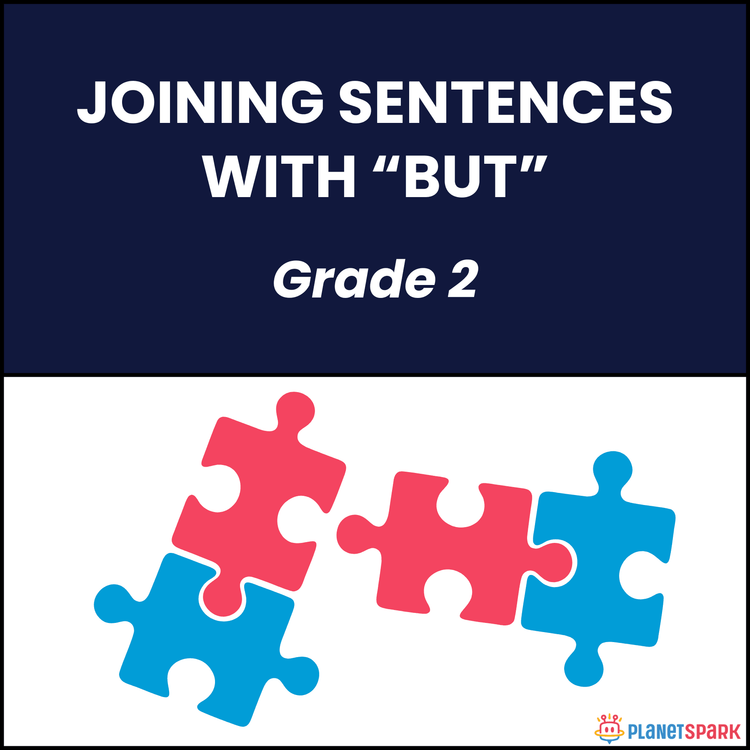Class 4 Direct and Indirect Speech Worksheet
Class 4EnglishEnglish GrammarFree DownloadPDF
Tanishka SharmaVisit Profile
I’m a passionate and fun-loving educator with 5 years of teaching experience, including the last 2 years at PlanetSpark. Along with my teaching journey, I also bring 2 years of corporate experience, which helps me connect practical communication skills with real-world applications. I love helping students build confidence, improve their communication, and grow into their best selves.
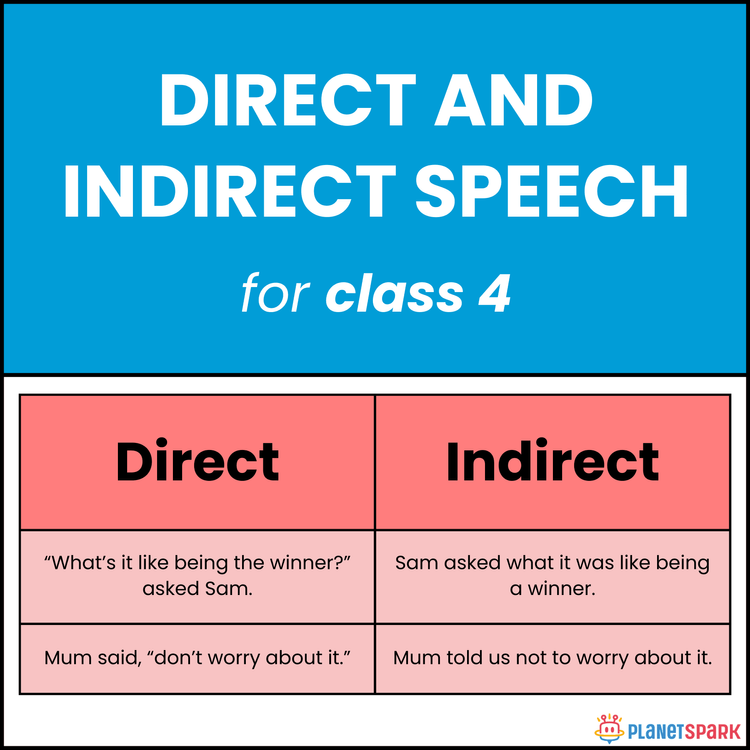

Class 4 Direct and Indirect Speech Worksheet
Class 4EnglishEnglish GrammarFree DownloadPDF
Tanishka SharmaVisit Profile
I’m a passionate and fun-loving educator with 5 years of teaching experience, including the last 2 years at PlanetSpark. Along with my teaching journey, I also bring 2 years of corporate experience, which helps me connect practical communication skills with real-world applications. I love helping students build confidence, improve their communication, and grow into their best selves.
Speak & Report: Direct and Indirect Speech for Class 4
This Class 4 worksheet introduces learners to direct and indirect speech. With tasks like matching, MCQs, rewriting, error correction, and sentence writing, students practice how to change direct quotations into reported speech and vice versa. Fun, age-appropriate examples make this grammar concept easy and engaging.
Why Direct and Indirect Speech Matters in Grammar?
This worksheet helps children:
1. Understand the difference between spoken words and reported speech.
2. Practice rules for tense, pronoun, and time changes in indirect speech.
3. Improve their ability to retell conversations accurately.
4. Strengthen communication and writing clarity.
What’s Inside This Worksheet?
This worksheet includes five practice-based activities:
Exercise 1 – Match the Following
Students match direct sentences with their correct indirect forms (e.g., *“I found a seashell,” said Rina.* → *Rina said she had found a seashell*).
Exercise 2 – Multiple Choice Questions
Learners choose the correct indirect speech for given direct sentences, e.g., *“I like the red kite,” said Nita* → *Nita said that she likes the red kite*.
Exercise 3 – Rewrite the Sentences
Students convert direct speech into indirect, e.g., *“I am reading a story,” said Reena* → *Reena said that she was reading a story*.
Exercise 4 – Error Correction (Indirect to Direct)
Learners correct indirect sentences into direct speech, e.g., *Rohan said that he was tired* → *“I am tired,” said Rohan*.
Exercise 5 – Sentence Writing
Students write their own direct sentences and change them into indirect.
✅ Answer Key (For Parents & Educators)
Exercise 1 – Match the Following
1. Rina said she had found a seashell.
2. They said they were baking cookies.
3. Omar said he had a blue bicycle.
4. She said she would join me after lunch.
5. Arjun said they liked painting.
6. Lila said they had visited the museum the week before.
7. Priya said she could speak French.
8. Karan said they were feeding the ducks.
Exercise 2 – MCQs
1. b. Nita said that she likes the red kite.
2. b. His mother said that Ravi was tired.
3. c. Arun said that he would help me.
4. b. The children said that they were late.
5. c. Mira said that she had seen two parrots.
6. a. Kabir said that he could finish that.
7. c. The twins said that they had gone to the farm.
8. b. Pia said that she was drawing a cat.
Exercise 3 – Rewrite into Indirect
1. Reena said that she was reading a story.
2. Rohan said that he would help me with homework.
3. Meena said that she liked sweet mangoes.
4. The children said that they were playing outside.
5. Arun said that he had seen a deer in the forest.
6. Mother said that she could sing well.
7. The boys said that they would meet again.
8. Kavita said that she had finished her drawing.
9. Father said that he was eating an apple.
10. The athlete said that he had been running fast.
Exercise 4 – Rewrite into Direct
1. “I am tired,” said Rohan.
2. “I like ice cream,” said Anita.
3. “I am cooking dinner,” said Mother.
4. “We played football,” said the boys.
5. “I will help you,” said Father.
6. “I can sing a song,” she said.
7. “We are going to the park,” they said.
8. “I have finished my work,” he said.
9. “I told you a story,” said Grandpa.
10. “I will sing a song tomorrow,” she said.
Exercise 5 – Sample Sentences (Answers will vary)
Direct: “I am drawing a picture,” said Amit. → Indirect: Amit said that he was drawing a picture.
Direct: “We shall go to the park,” said the children. → Indirect: The children said that they would go to the park.
Direct: “She can dance well,” said Anu. → Indirect: Anu said that she could dance well.
Direct: “I have finished my work,” said Rita. → Indirect: Rita said that she had finished her work.
Direct: “I was watching TV,” said Mohan. → Indirect: Mohan said that he had been watching TV.
Help your child master reporting speech — turning conversations into clear, grammatically correct sentences!
🔖Book a free trial!
Frequently Asked Questions
Direct speech quotes the exact words spoken, while indirect speech reports the idea without quoting directly.
It improves their ability to narrate conversations in writing.
Look for changes in pronouns, verb tenses, and time expressions.
